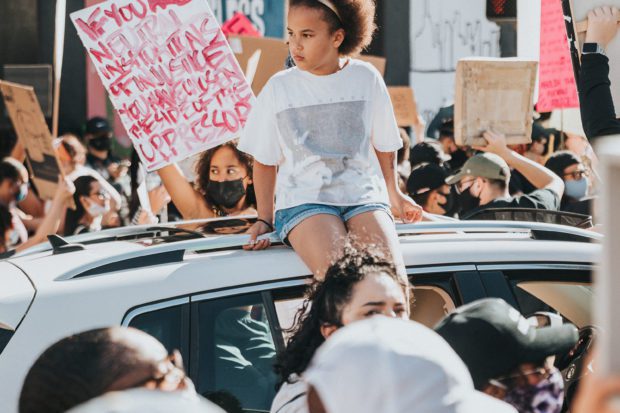

The U.S. cultural fixation on punishment relies on major institutions to recycle and recirculate beliefs and practices that make chronic punishment look “natural,” “inevitable” and “timeless.” The major institutions of the juvenile and criminal court systems, as well as school systems, are some of the largest institutions that coopt their employees and adjacent communities to believe that punishment as it is done today in the United States is, of course, the appropriate and needed way to manage populations.
We can choose from many institutional examples that unfold daily. The sneaky thing about cultural beliefs and practices is that they appear to be created and maintained by self-directed individuals, but, in fact, the collective agreements that occur within an institution’s reach show us the cultural-ness of these things.
Individuals carry out actions that reflect institutional agreements that fulfill the cultural beliefs. We can easily bear witness to individuals who are fulfilling the scripts and blueprints of the U.S. cultural punishment fixation.
For example, consider the recent Fresno Unified School District (FUSD) board’s decision to give millions to the police, funding police cars to chase students and administrative costs for the surveillance of students. All but one school board member, representatives of families living across their various trustee areas of the school district, voted to advance the criminalization processes for students.
This is a simple instance of the collective agreement to believe in the appropriateness of greater and greater amounts of punishment for children. If we time traveled to a different period or teleported to another part of the globe, we can find collective agreements that focus on the protection and nurturing of children rather than investing in more ways to criminalize them.
In this FUSD example, however, the way we do/invent/construct punishment in the United States is always linked to fulfilling racist and colonial agendas. When school board members voted to advance the criminalization processes for students, in actuality they voted to advance punishment for BIPOC children.
The U.S. cultural imagining about who is appropriate to punish, whether it is spoken publicly by local politicians or implied, is evident in the continued support by the school board for students to be punished for school disciplinary issues by racial category.
Education research shows that many school discipline issues across the country are equally distributed across students’ heritage groups, but based on the FUSD’s disciplinary data, the FUSD preference is to target BIPOC (Black, Indigenous and people of color) students.
Although school board members recently voted to advance punishment for BIPOC children, they had already been voting metaphorically by their negligence to ask questions about the failed programming in FUSD high schools called Restorative Practices (RP), which was launched in 2014. To date, RP still has not been comprehensively implemented and leadership, such as the school board, succeed in making sure that racist school disciplinary practices continue with the inclusion of new cars and more cash.
When we get to see instances of the contrary here in the United States, a standing ovation is deserved. For an institutional outlet and/or leadership group to select not to implement the cultural and racist fixation with punishing BIPOC communities, something special is unfolding.
Intentional script switching and the remaking of blueprints are required. There are always ghosts monitoring the periphery of such examples, ghosts of the larger, established collective that can interfere with the finances and sustainability of these countercultural examples. Until—at some point—a shift is made in the cultural beliefs of that larger collective.
Ultimately, the role of institutions in a racist society like the United States is to fulfill racism. Institutions are intended to deliver on the cultural beliefs of the context in which they are created and operated.
The FUSD example, then, is an example of coherency across the U.S. cultural fixation with punishment, particularly for BIPOC groups. The school board is successfully recycling and recirculating the punishment beliefs and practices that make chronic punishment of BIPOC children look “natural,” “inevitable” and “timeless.”

